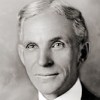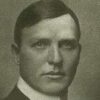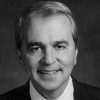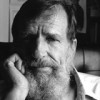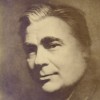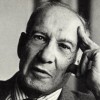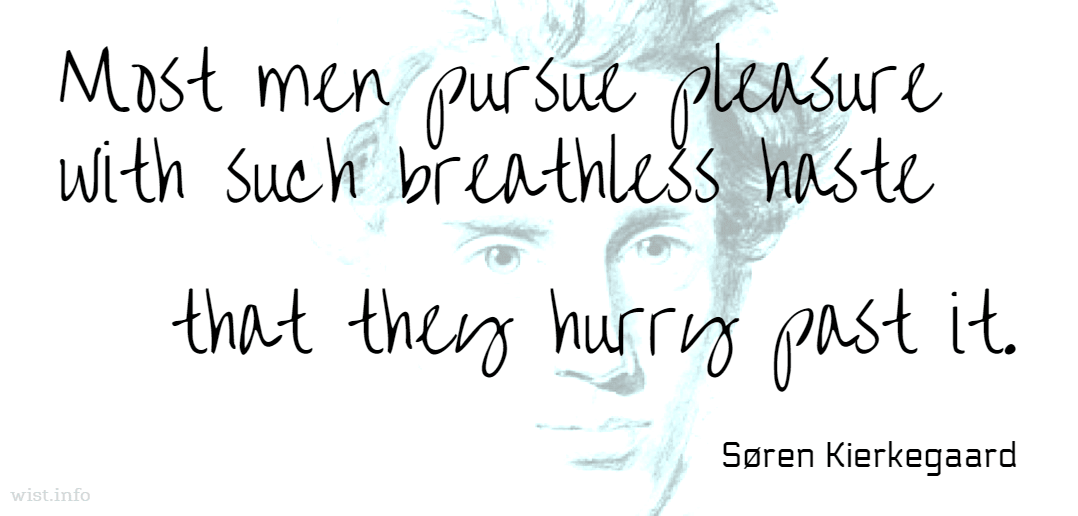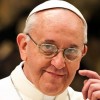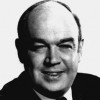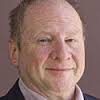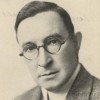Advanced cultures are usually sophisticated enough, or have been sophisticated enough at some point in their pasts, to realize that foxes shouldn’t be relied on to guard henhouses.
Jane Jacobs (1916-2006) American-Canadian journalist, author, urban theorist, activist
Dark Age Ahead, ch. 6 (2004)
(Source)
On business regulation, versus self-policing.
Quotations about:
business
Note not all quotations have been tagged, so Search may find additional quotes on this topic.
‘Tis for little Souls, that truckle under the Weight of Affairs, not to know how clearly to disengage themselves, and not to know how to lay them aside, and take them up again.
[C’est aux petites ames ensevelies du poix des affaires, de ne s’en sçavoir purement desmesler : de ne les sçavoir et laisser et reprendre.]Michel de Montaigne (1533-1592) French essayist
Essays, Book 3, ch. 13 “On Experience [De l’Experience]” (1588) (3.13) (1595) [tr. Cotton (1686)]
(Source)
(Source (French)). Alternate translations:
It is for base and pettie mindes, dulled and overwhelmed with the weight of affaires, to be ignorant how to leave them, and not to know how to free themselves from them; nor how to leave and take them againe.
[tr. Florio (1603)]
’Tis for little souls, that truckle under the weight of affairs, not from them to know how clearly to disengage themselves, not to know how to lay them aside and take them up again.
[tr. Cotton/Hazlitt (1877)]
It is for small souls, buried under the weight of affairs, not to know how to free themselves therefrom entirely; not to know how to leave them and return to them.
[tr. Ives (1925)]
It is for little souls, buried under the weight of business, to be unable to detach themselves cleanly from it or to leave it and pick it up again.
[tr. Frame (1943)]
It is for petty souls overwhelmed by the weight of affairs to be unable to disentangle themselves for them completely, not knowing how to drop them and then take them up again.
[tr. Screech (1987)]
The least vile of all merchants is he who says: “Let us be virtuous, since, thus, we shall gain much more money than the fools who are dishonest.” For the merchant, even honesty is a financial speculation.
[Le moins infâme de tous les commerçants, c’est celui qui dit: Soyons vertueux pour gagner beaucoup plus d’argent que les sots qui sont vicieux. — Pour le commerçant, l’honnêteté elle-même est une spéculation de lucre.]
Charles Baudelaire (1821-1867) French poet, essayist, art critic
Journaux Intimes [Intimate Journals], “Mon cœur mis à nu [My Heart Laid Bare],” § 47 (1864–1867; pub. 1887) [tr. Isherwood (1930)]
(Source)
(Source (French)). Alternate translation:
The least despicable of merchants is the one who says: Let us be virtuous so that we can make far more money than those vice-ridden fools. -- For the merchant, even honesty offers a money-making opportunity.
[tr. Sieburth (2022)]
Money is only a tool in business. It is just a part of the machinery. You might as well borrow 100,000 lathes as $100,000 if the trouble is inside your business. More lathes will not cure it; neither will more money. Only heavier doses of brains and thought and wise courage can cure. A business that misuses what it has will continue to misuse what it can get.
Henry Ford (1863-1947) American industrialist
My Life and Work, ch. 11 “Money and Goods” (1922) [with Samuel Crowther]
(Source)
Scientists and business leaders who care about social justice should join forces with environmental and religious organizations to give political clout to ethics. Science and religion should work together to abolish the gross inequalities that prevail in the modern world. That is my vision, and it is the same vision that inspired Francis Bacon four hundred years ago, when he prayed that through science God would “endow the human family with new mercies.”
He who without necessity embarks
In many matters, is a fool for slighting
The obvious blessings of a tranquil life.[ὅστις δὲ πράσσει πολλὰ µὴ πράσσειν παρόν,
µῶρος, παρὸν ζῆν ἡδέως ἀπράγµονα.]Euripides (485?-406? BC) Greek tragic dramatist
Antiope [Αντιοπη], frag. 193 (TGF, Kannicht) [Amphion] (c. 410 BC) [tr. Wodhall (1809)]
(Source)
Barnes fragment 104, Musgrave 25. (Source (Greek)). Alternate translation:
Whoever is very active when he may be inactive, is a moron,
when he may live pleasantly keeping clear from politics.
[tr. Will (2015)]
Whoever is overactive when he could relax
is foolish, for he misses out on a pleasant life.
[Source]
Civilization, let me tell you what it is. First the soldier, then the merchant, then the priest, then the lawyer. The merchant hires the soldier and priest to conquer the country for him. First the soldier, he is a murderer; then the priest, he is a liar; then the merchant, he is a thief; and they all bring in the lawyer to make their laws and defend their deeds, and there you have your civilization!
Katherine Anne Porter (1890-1980) American journalist, essayist, author, political activist [b. Callie Russell Porter]
Ship of Fools, Part 2 [Hansen] (1962)
(Source)
Businesses have changed when the public came to expect and require different behavior, to reward businesses for behavior that the public wanted, and to make things difficult for businesses practising behaviors that the public didn’t want. I predict that in the future, just as in the past, changes in public attitudes will be essential for changes in businesses’ environmental practices.
Jared Diamond (b. 1937) American geographer, historian, ornithologist, author
Collapse: How Societies Choose to Fail or Succeed, “Big businesses and the environment” (2005)
(Source)
Exercise caution in your business affairs;
for the world is full of trickery.
But let this not blind you to what virtue there is;
many persons strive for high ideals;
and everywhere life is full of heroism.
My views may seem to ignore a moral imperative that businesses should follow virtuous principles, whether or not it is most profitable for them to do so. Instead I prefer to recognize that, throughout human history, in all politically complex human societies in which people encounter other individuals with whom they have no ties of family or clan relationship, government regulation has arisen precisely because it was found to be necessary for the enforcement of moral principles. Invocation of moral principles is a necessary first step for eliciting virtuous behavior, but that alone is not a sufficient step.
Jared Diamond (b. 1937) American geographer, historian, ornithologist, author
Collapse: How Societies Choose to Fail or Succeed, “Big Businesses and the Environment” (2005)
(Source)
More strategies fail because they are overripe than because they are premature.
Kenichi Ohmae (b. 1943) Japanese management consultant, writer
The Mind of the Strategist (1982)
(Source)
The life of making money is a life people are, as it were, forced into, and wealth is clearly not the good we are seeking, since it is merely useful, for getting something else.
[ὁ δὲ χρηματιστὴς βίαιός τις ἐστίν, καὶ ὁ πλοῦτος δῆλον ὅτι οὐ τὸ ζητούμενον ἀγαθόν.]
Aristotle (384-322 BC) Greek philosopher
Nicomachean Ethics [Ἠθικὰ Νικομάχεια], Book 1, ch. 5 (1.5, 1096a.5) (c. 325 BC) [tr. Crisp (2000)]
(Source)
Rackham notes the term βίαιος (translated under compulsion/constraint) is "literally ‘violent’; the adjective is applied to the strict diet and and laborious exercises of athletes, and to physical phenomena such as motion, in the sense of ‘constrained,’ ‘not natural.’"
(Source (Greek)). Alternate translations:
As for the life of money-making, it is one of constraint, and wealth manifestly is not the good we are seeking, because it is for use, that is, for the sake of something further.
[tr. Chase (1847), ch. 3]
As for the money-getting life, it violates the natural fitness of things. Wealth is clearly not the absolute good of which we are in search, for it is a utility, and nonly desirable as a means.
[tr. Williams (1869)]
The life of money-making is in a sense a life of constraint, and it is clear that wealth is not the good of which we are in quest; for it is useful in part as a means to something else.
[tr. Welldon (1892), ch. 3]
As for the money-making life, it is something quite contrary to nature; and wealth evidently is not the good of which we are in search, for it is merely useful as a means to something else.
[tr. Peters (1893)]
The life of money-making is one undertaken under compulsion, and wealth is evidently not the good we are seeking; for it is merely useful and for the sake of something else.
[tr. Ross (1908)]
The Life of Money-making is a constrained kind of life, and clearly wealth is not the Good we are in search of, for it is only good as being useful, a means to something else.
[tr. Rackham (1934), 1.5.8]
The life of a moneymaker is in a way forced, and wealth is clearly not the good we are looking for, since it was useful and for the sake of something else.
[tr. Reeve (1948), ch. 5]
As for the life of a money-maker, it is one of tension; and clearly the good sought is not wealth, for wealth is instrumental and is sought for the sake of something else.
[tr. Apostle (1975), ch. 3]
As for the life of the businessman, it does not give him much freedom of action. Besides, wealth is obviously not the good that we are seeking, because it serves only as a means; i.e., for getting something else.
[tr. Thomson/Tredennick (1976)]
The moneymaking life is characterized by a certain constraint, and it is clear that wealth is not the good being sought, for it is a useful thing and for the sake of something else.
[tr. Bartlett/Collins (2011)]
No one on his deathbed ever said, “I wish I had spent more time on my business.”
Paul Tsongas (1941-1997) American politician
Heading Home (1984), quoting Arnold Zack
(Source)
Often misattributed directly to Tsongas, this was quoted from a letter from Zack, a Massachusetts lawyer and old friend, during Tsongas' battle with cancer.
These executives, who have risen to the top, have come to be responsible trustees, impartial umpires, and expert brokers for a plurality of economic interests, including those of all the millions of small property holders who hold stock in the great American enterprises, but also the wage workers and the consumers who benefit from the great flow of goods and services. These executives, it is held, are responsible for the refrigerator in the kitchen and the automobile in the garage — as well as all the planes and bombs that now guard Americans from instant peril. […] Full of the know-how that made America great; efficient, straightforward, honest, the chief executives, it is often said, ought really to be allowed to run the government, for if only such men were in charge there would be no waste, no corruption, no infiltration.
C. Wright Mills (1916-1962) American sociologist, academic, author [Charles Wright Mills]
The Power Elite, ch. 6 (1956)
(Source)
There is no such thing as a self-made man. Every businessman has used the vast American infrastructure, which the taxpayers paid for, to make his money. He did not make his money alone.
George Lakoff (b. 1941) American cognitive linguist and philosopher
Don’t Think of an Elephant! (2004)
(Source)
More businesses die of indigestion than starvation.
David Packard (1912-1996) American electrical engineer, businessman, government official
(Misattributed)
The quote is frequently attributed to Packard, but actually he (anonymously) quoted in his book, The HP Way: How Bill Hewlett and I Built Our Company (1995): "Wells Fargo sent a retired engineer to visit us. I spent a full afternoon with him and I have remembered ever since some advice he gave me. He said that more businesses die of indigestion than starvation. I have observed the truth of that advice many times since then."
Variants of the saying include "entrepreneurs," "companies," and "start-ups" in place of "businesses." See here for more information.
There is no wilderness where I can hide from these things, there is no haven where I can escape them; though I travel to the ends of the earth, I find the same accursed system — I find that all the fair and noble impulses of humanity, the dreams of poets and the agonies of martyrs, are shackled and bound in the service of organized and predatory Greed! And therefore I cannot rest, I cannot be silent; therefore I cast aside comfort and happiness, health and good repute — and go out into the world and cry out the pain of my spirit!
Upton Sinclair (1878-1968) American writer, journalist, activist, politician
The Jungle, ch. 28 (1906)
(Source)
Meantime, heedless of all these things, the men upon the floor were going about their work. Neither squeals of hogs nor tears of visitors made any difference to them; one by one they hooked up the hogs, and one by one with a swift stroke they slit their throats. There was a long line of hogs, with squeals and lifeblood ebbing away together; until at last each started again, and vanished with a splash into a huge vat of boiling water.
It was all so very businesslike that one watched it fascinated. It was porkmaking by machinery, porkmaking by applied mathematics. And yet somehow the most matter-of-fact person could not help thinking of the hogs; they were so innocent, they came so very trustingly; and they were so very human in their protests — and so perfectly within their rights! They had done nothing to deserve it; and it was adding insult to injury, as the thing was done here, swinging them up in this cold-blooded, impersonal way, without a pretense of apology, without the homage of a tear. Now and then a visitor wept, to be sure; but this slaughtering machine ran on, visitors or no visitors. It was like some horrible crime committed in a dungeon, all unseen and unheeded, buried out of sight and of memory.
Upton Sinclair (1878-1968) American writer, journalist, activist, politician
The Jungle, ch. 3 (1906)
(Source)
The methods by which the “Empire of Business” maintains its control over journalism are four: First, ownership of the papers; second, ownership of the owners; third, advertising subsidies; and fourth, direct bribery. By these methods there exists in America a control of news and of current comment more absolute than any monopoly in any other industry.
Upton Sinclair (1878-1968) American writer, journalist, activist, politician
The Brass Check, ch. 38 “Owning the Press” (1919)
(Source)
The essence of success is that it is never necessary to think of a new idea oneself. It is far better to wait until somebody else does it, and then to copy him in every detail, except his mistakes.
Aubrey Menen (1912-1989) British writer, novelist, satirist, theatre critic
The Abode of Love, Part 3, “The Random Wooings” (1956)
(Source)
business business business
grind grind grind
what a life for a man
that might have been a poetDon Marquis (1878-1937) American journalist and humorist
“pete the parrot and shakespeare,” archy and mehtabel (1927)
(Source)
Concentration is the secret of strength in politics, in war, in trade, in short, in all management of human affairs.
Ralph Waldo Emerson (1803-1882) American essayist, lecturer, poet
“Power,” The Conduct of Life, ch. 2 (1860)
(Source)
The trail of the serpent reaches into all the lucrative professions and practices of man, Each has its own wrongs. Each finds a tender and very intelligent conscience a disqualification for success. Each requires of the practitioner a certain shutting of the eyes, a certain dapperness and compliance, an acceptance of customs, a sequestration from the sentiments of generosity and love, a compromise of private opinion and lofty integrity.
Ralph Waldo Emerson (1803-1882) American essayist, lecturer, poet
“Man the Reformer,” lecture, Boston (1841-01-25)
(Source)
Culture eats strategy for breakfast.
Peter F. Drucker (1909-2005) Austrian-American business consultant
(Attributed)
Frequently attributed to Drucker, but not found in his writings. See here for more discussion.
When the rich rob the poor it’s called business. When the poor fight back it’s called violence.
Mark Twain (1835-1910) American writer [pseud. of Samuel Clemens]
(Spurious)
Frequently, but incorrectly attributed to Twain, no earlier than 2015. It appears to have been an anonymous phrase coined in the Occupy Movement in 2011. See here for more information.
If you attempt to beat a man down and to get his goods for less than a fair price, you are attempting to commit burglary, as much as though you broke into his shop to take the things without paying for them. There is cheating on both sides of the counter and generally less behind it than before it.
I’m not really rich. I’m something far more noble I’m a job creator. [Heavenly chorus] Sort of the same way Patagonian tooth-fish became Chilean sea-bass. [Heavenly chorus] But y’know what, just by suggesting, just by bringing it up, that he is going to tax me more, Comrade Obama has created an atmosphere of uncertainty that makes me skittish about creating more jobs, yeah, I have been so freaked out that today at breakfast I could barely butter my gold. You see, you poor people, you don’t get how much “uncertainty” gives us job creators the willies. It’s terrifying — like when you find out your private island has natives; or when your wife notices the maid’s kid looks just like you; or when the limo driver tries to start a conversation. So tax me at a higher rate if you like, you’re practically firing yourselves. Because I’ll tell you something, I have been so shitting in my pants about this uncertainty thing, that yesterday I let go a dozen essential workers at my compound, including my Tivo programmer, my manscaper, the liposuctionist, my gardener’s personal trainer, my dog whisperer, the lookalike I hired to foil assassination attempts, my private farmer, the lady who dispenses hand sanitizer after our pre-show prayer circle, the girl I pay to mistake me for Jon Hamm, and the guy who takes care of the shark tank. Which reminds me, I’m gonna have to let go two sharks!
One who is too nice an observer of the business of others, like one who is too curious in observing the labor of bees, will often be stung for his curiosity.
I hold it to be our duty to see that the wage worker, the small producer, the ordinary consumer, shall get their fair share of the benefit of business prosperity. But it either is or ought to be evident to everyone that business has to prosper before anybody can get any benefit from it.
Business and pleasure, rightly understood, mutually assist each other, instead of being enemies, as silly or dull people often think them. No man tastes pleasures truly who does not earn them by previous business; and few people do business well who do nothing else.
Lord Chesterfield (1694-1773) English statesman, wit [Philip Dormer Stanhope]
Letter to his son, #189 (7 Aug 1749)
(Source)
Recently I asked three corporate executives what decisions they had made in the last year that they would not have made were it not for their it not for their corporate plans. All had difficulty in identifying one such decision. Since each of their plans were marked “secret” or “confidential,” I asked them how their competitors might benefit from the possession of their plans. Each answered with embarrassment that their competitors would not benefit. Yet these executives were strong advocates of corporate planning.
The only way in which our people can increase their power over the big corporation that does wrong, the only way in which they can protect the working man in his conditions of work and life, the only way in which the people can prevent children working in industry or secure women an eight-hour day in industry, or secure compensation for men killed or crippled in industry, is by extending, instead of limiting, the powers of government.
Theodore Roosevelt (1858-1919) American politician, statesman, conservationist, writer, US President (1901-1909)
Speech, San Francisco (14 Sep 1912)
(Source)
So long as governmental power existed exclusively for the king and not at all for the people, then the history of liberty was a history of the limitation of governmental power. But now the governmental power rests in the people, and the kings who enjoy privilege are the kings of the financial and industrial world; and what they clamor for is the limitation of governmental power, and what the people sorely need is the extension of governmental power.
Theodore Roosevelt (1858-1919) American politician, statesman, conservationist, writer, US President (1901-1909)
Speech, San Francisco (14 Sep 1912)
(Source)
Business is a vocation, and a noble vocation, provided that those engaged in it see themselves challenged by a greater meaning in life; this will enable them truly to serve the common good by striving to increase the goods of this world and to make them more accessible to all.
Francis I (b. 1936) Argentinian Catholic Pope (2013- ) [b. Jorge Mario Bergoglio]
Evangelii Gaudium, sec. 203 (24 Nov 2013)
(Source)
To read the front pages, you might conclude that Americans are mostly out for themselves, venal, grasping, and mean-spirited. The front pages have room only for defense contractors who cheat and politicians with their hands in the till. But you can’t travel the back roads very long without discovering a multitude of gentle people doing good for others with no expectation of gain or recognition. The everyday kindness of the back roads more than makes up for the acts of greed in the headlines.
I hope we shall take warning from [England’s] example and crush in its birth the aristocracy of our monied corporations which dare already to challenge our government to a trial of strength and bid defiance to the laws of our country.
Thomas Jefferson (1743-1826) American political philosopher, polymath, statesman, US President (1801-09)
Letter (1816-11-12) to George Logan
(Source)
For every special interest is entitled to justice, but not one is entitled to a vote in Congress, to a voice on the bench, or to representation in any public office. The Constitution guarantees protections to property, and we must make that promise good. But it does not give the right of suffrage to any corporation. The true friend of property, the true conservative, is he who insists that property shall be the servant and not the master of the commonwealth; who insists that the creature of man’s making shall be the servant and not the master of the man who made it. The citizens of the United States must effectively control the mighty commercial forces which they have called into being.
Theodore Roosevelt (1858-1919) American politician, statesman, conservationist, writer, US President (1901-1909)
“The New Nationalism,” speech, Osawatomie, Kansas (31 Aug 1910)
(Source)
Perpetual devotion to what a man calls his business, is only to be sustained by perpetual neglect of many other things.
Robert Louis Stevenson (1850-1894) Scottish essayist, novelist, poet
“An Apology for Idlers” (1881)
(Source)
Do Business, but be not a Slave to it.
Thomas Fuller (1654-1734) English physician, preacher, aphorist, writer
Gnomologia: Adages and Proverbs, #1304 (1732)
(Source)
Don’t forget until too late that the business of life is not business, but living.
There is no kind of idleness by which we are so easily seduced as that which dignifies itself by the appearance of business.
Samuel Johnson (1709-1784) English writer, lexicographer, critic
The Idler, #48 (17 Mar 1759)
(Source)
ANTONY: To business that we love we rise betime
And go to ’t with delight.William Shakespeare (1564-1616) English dramatist and poet
Antony and Cleopatra, Act 4, sc. 4, l. 27ff (4.4.27-28) (1607)
(Source)
“But you were always a good man of business, Jacob,” faltered Scrooge, who now began to apply this to himself.
“Business!” cried the Ghost, wringing its hands again. “Mankind was my business. The common welfare was my business; charity, mercy, forbearance, and benevolence were, all, my business. The dealings of my trade were but a drop of water in the comprehensive ocean of my business!”
Meetings are an addictive, highly self-indulgent activity that corporations and other large organizations habitually engage in only because they cannot actually masturbate.




